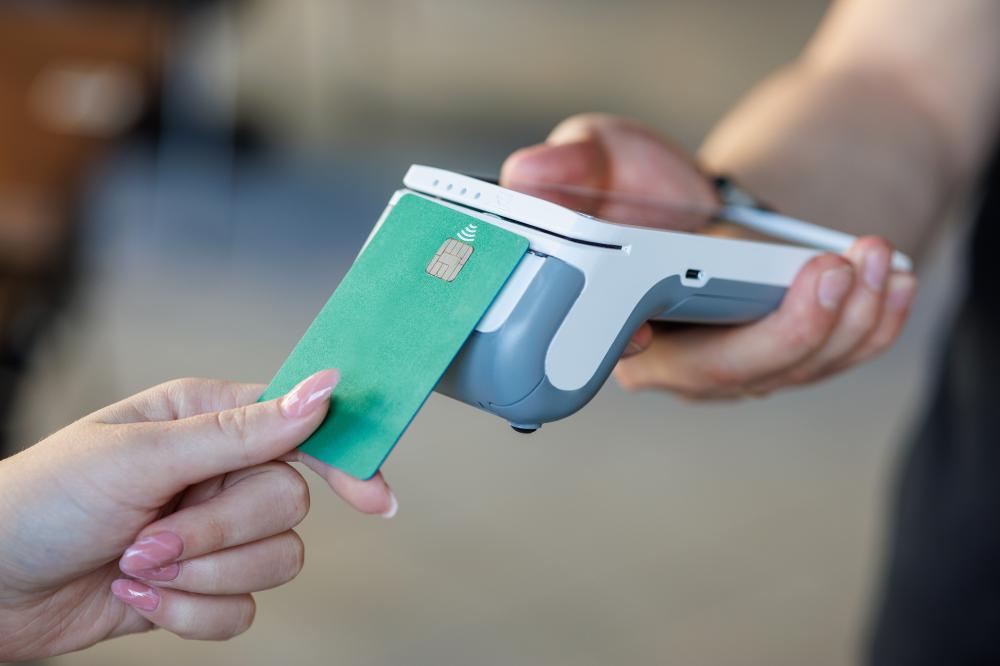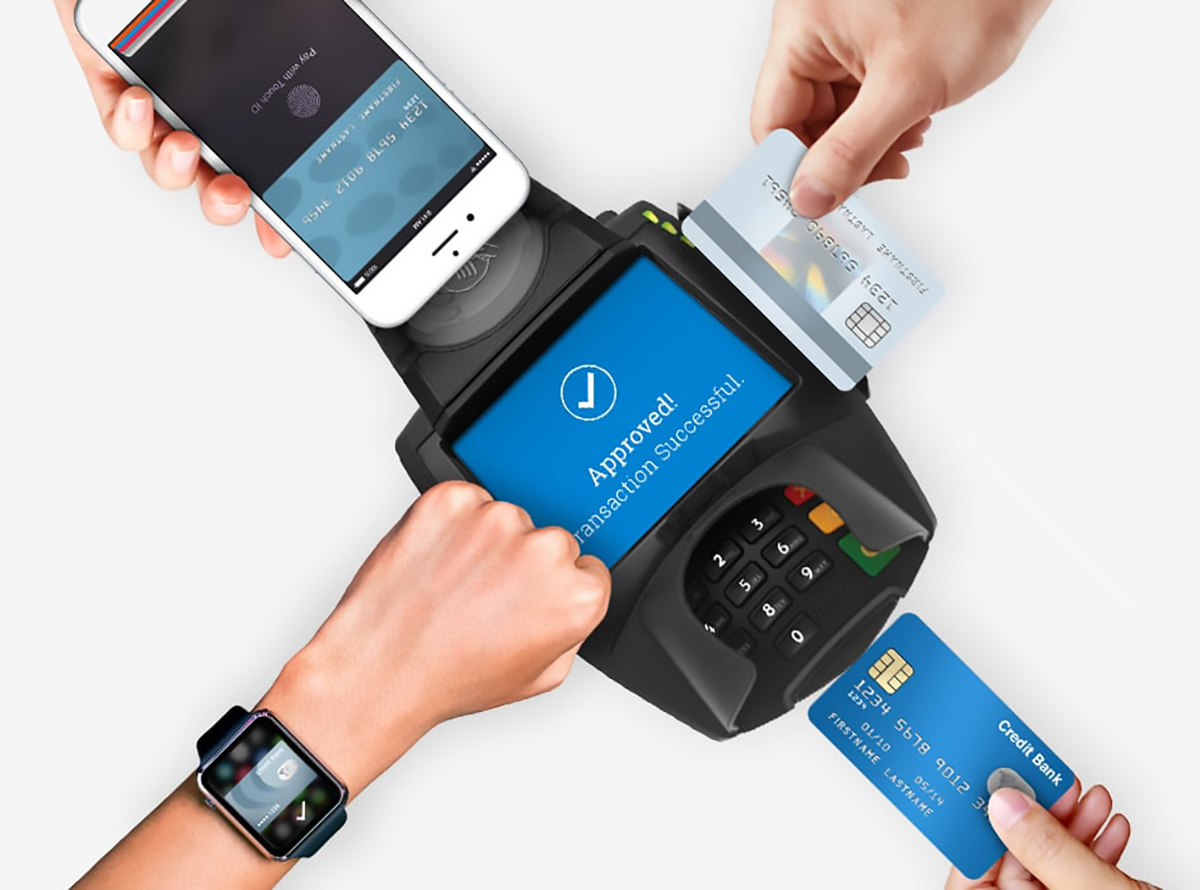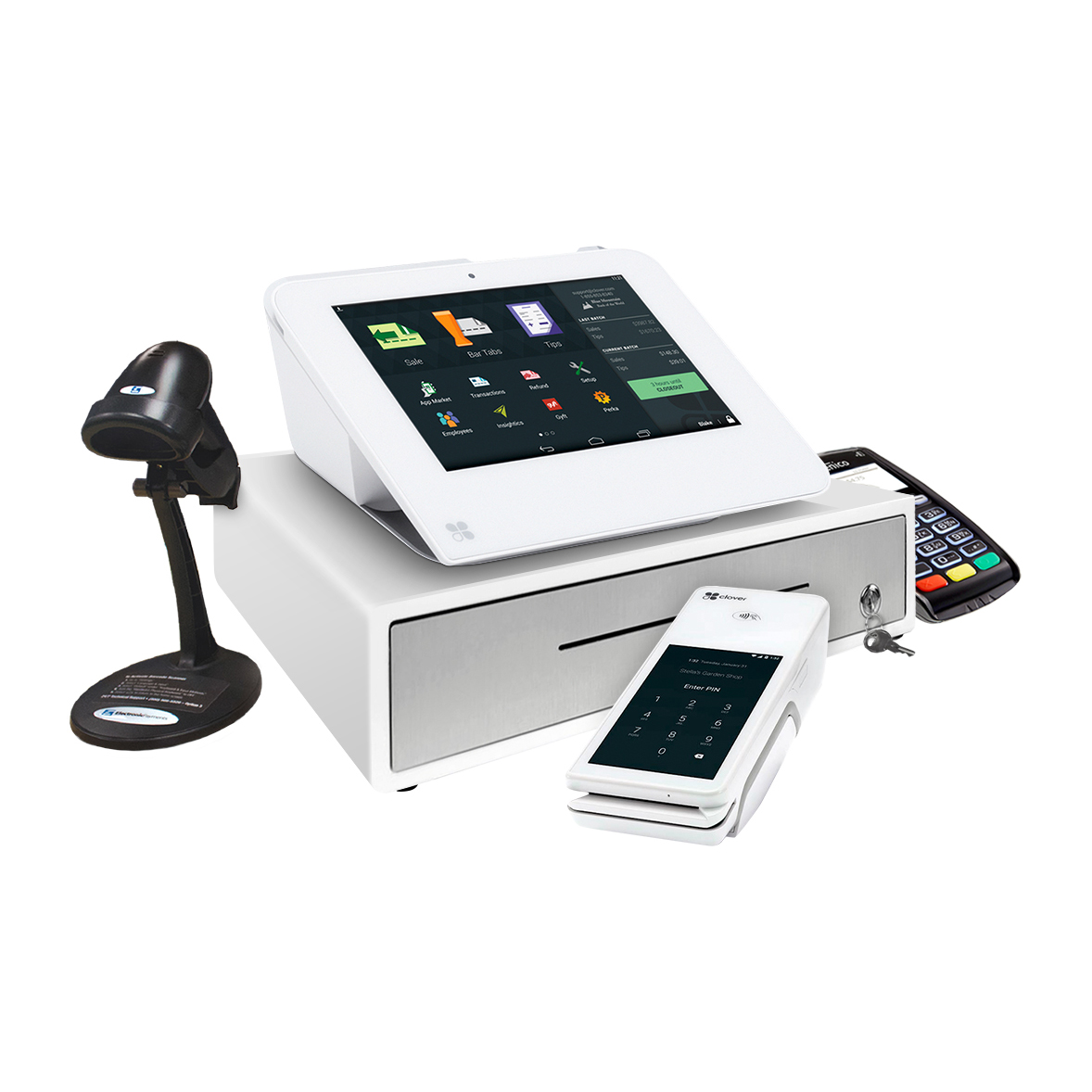Our cloud-based platform is so seamlessly integrated you would think it was part of your accounting software.





Seamless Integration with QuickBooks Online
Transform your payment experience with the intuitive interface of QuickBooks Online credit card processing. This system seamlessly integrates with your existing QuickBooks ecosystem, ensuring your financial data is always in sync. No more manual data entry or reconciliation headaches--transactions are automatically recorded, saving you time and reducing errors.
As a business owner for over two decades, I've seen firsthand how QuickBooks online credit card processing simplifies operations. The integration is so smooth that it effectively removes traditional barriers to effective payment processing. This ease of use is invaluable, especially when you're juggling multiple business responsibilities.
Reducing QuickBooks Credit Card Fees
One pressing concern for many businesses is the high fees associated with credit card processing. QuickBooks Online credit card processing addresses this issue by offering optimized fees through Level 2 and Level 3 processing. This advanced technology can significantly lower your costs without compromising service quality.
Consider an instance where a client of mine was burdened with excessive fees using another service. By switching to QuickBooks online credit card processing, they noticed a substantial reduction in processing fees, thanks to optimized interchange rates. This transition not only boosted their bottom line but also enhanced their trust in our services.
What Are the Benefits of Using QuickBooks Online Credit Card Processing?
QuickBooks Online credit card processing provides a multitude of benefits designed to support and grow your business. The robust features ensure your payment handling is efficient, secure, and adaptable to changing needs.
- Enhanced Security: Full PCI compliance ensures that your transactions are protected, fostering trust with your clients.
- Customizable Invoicing: Tailor your invoices to reflect your brand identity, making every transaction more personal and professional.
- Real-Time Reconciliation: With real-time updates, your books stay accurate, helping you make informed financial decisions.
How to Set Up QuickBooks Online Credit Card Processing
Integrating QuickBooks online credit card processing into your business is a straightforward process. Here's a simple guide to get you started:
- Create a QuickBooks Account: If you already have one, skip to step 2. Otherwise, sign up with the necessary details.
- Select a Plan: Choose the plan that best suits your business needs, keeping in mind future scalability.
- Connect Your Bank: Link your business bank account to QuickBooks for direct transaction management.
- Activate Payments: Enable the credit card processing feature and configure your payment settings.
- Test Transactions: Run test transactions to ensure the setup is flawless before you start real ones.
Real-World Scenarios and Success Stories
Having guided numerous businesses through the integration of QuickBooks online credit card processing, I've gathered a wealth of success stories. Take the example of Sarah's boutique, which struggled with high transaction fees and a cumbersome reconciliation process. After switching to QuickBooks, not only did Sarah see a 20% reduction in fees, but her transaction management became almost effortless.
Similarly, a mid-sized construction company found that automating their invoicing and payments with QuickBooks led to faster collections and improved cash flow. The time saved allowed them to focus on growing their business rather than managing paperwork.

Benefits of QuickBooks Credit Card Processing Integration
QuickBooks credit card processing integration is a game-changer for businesses. As someone with over 20 years in the industry, I've witnessed how seamless setups with QuickBooks Online, Desktop, and POS eliminate technical headaches, transforming how we manage payments. This integration allows businesses to streamline their operations, cutting down on the time spent on reconciliations and ensuring the accuracy of financial data.
Integrating your payment systems with QuickBooks credit card processing not only saves time but also boosts efficiency. Imagine having all your financial transactions in one place, automatically updating and reconciling with every card swipe. It's like having a digital assistant who never sleeps! With this setup, businesses can focus their energy on growth rather than administrative tasks.
Moreover, the integration supports various payment methods, including ACH and recurring payments, offering flexibility to your clients. Whether you're managing a small retail store or a large service-based enterprise, the ability to accept multiple forms of payment is crucial. This flexibility ensures you cater to all customer preferences, enhancing satisfaction and fostering loyalty.
Steps to Lower QuickBooks Credit Card Processing Fees
- Negotiate Better Rates: Engage with your merchant service provider to discuss and negotiate lower processing fees.
- Utilize Cash Discounts: Implement cash discount programs to reduce costs associated with credit card transactions.
- Optimize Interchange Fees: Focus on Level 2/3 interchange optimization to achieve significant savings, especially in B2B transactions.
- Explore Zero-Cost Processing: Consider providers offering zero-cost processing models to minimize your expenditure.
By following these steps, businesses can significantly reduce their expenses related to QuickBooks credit card processing. As the saying goes, every penny saved is a penny earned, and these savings can be redirected towards other essential business needs.
Why Use QuickBooks Credit Card Processing?
With years of working alongside QuickBooks users, I've seen firsthand how the platform's credit card processing elevates business capabilities. Many clients have shared their success stories, attributing their streamlined financial management and improved cash flow to the robust features offered by QuickBooks credit card processing. It is the backbone of their daily operations, keeping their financial wheels in motion smoothly.
Another compelling reason is the intuitive nature of QuickBooks credit card processing. Its user-friendly interface requires minimal training, allowing businesses to hit the ground running. The impact? Less time spent on learning curves and more on what truly matters: serving your customers.
Security is paramount in financial transactions, and QuickBooks credit card processing doesn't cut corners. With PCI compliance and advanced fraud protection, businesses can conduct transactions with peace of mind. In a world where data breaches are rampant, this assurance is invaluable.
Finally, the software's ability to automate invoices and track payments is a game-changer. Businesses benefit from enhanced efficiency, as automatic billing reduces manual errors and accelerates the collection process, ensuring a positive cash flow.
Are There Alternatives to QuickBooks Credit Card Processing?
While QuickBooks credit card processing is a robust solution, it's essential to consider alternative options that might better meet specific business needs. For those requiring lower processing fees or unique service offerings, exploring platforms like Payment Depot with its membership-based model might be beneficial.
Alternatives often provide specific advantages. For instance, businesses processing high volumes of transactions might benefit from providers offering lower transaction fees, which can lead to substantial annual savings. Each alternative comes with its unique pricing, service features, and integration capabilities.
- Payment Depot
- Square
- PayPal
Before settling on a provider, it's crucial to assess your business requirements meticulously. Whether you prioritize lower fees, enhanced customer support, or specific features like automated billing, the right choice will largely depend on your operational priorities and customer base.
What Are the Common Questions About QuickBooks Credit Card Processing?
What does the integration process entail? Integrating QuickBooks credit card processing involves connecting your existing QuickBooks account with a compatible merchant service provider. It generally requires a few configuration steps within the QuickBooks platform.
How does it impact small businesses? Small businesses benefit from the ability to reconcile payments and accounts seamlessly, enabling them to focus on growth and customer service without getting bogged down by financial admin tasks.
Is QuickBooks credit card processing cost-effective? While fees can be on the higher side for some transaction types, the efficiency gains and seamless accounting integration often outweigh these costs, especially for businesses heavily reliant on QuickBooks for their accounting needs.
Integrating QuickBooks Credit Card Processing Fees
As someone who has spent over two decades working in the payment processing industry, I know how crucial it is for businesses to seamlessly integrate payment systems. QuickBooks credit card processing fees are a significant consideration for any business utilizing this platform. Our team at The POS Brokers specializes in helping businesses set up QuickBooks credit card processing integration with minimal hassle. Connecting QuickBooks with merchant accounts can streamline your payment operations, reduce processing time, and manage QuickBooks credit card processing fees more effectively.
Our expertise allows us to negotiate rates that are tailored to your business size and transaction volume, ensuring that you aren't paying more than necessary for QuickBooks credit card processing fees. From QuickBooks Online to Desktop, our goal is to make the integration process as smooth as possible, eliminating technical headaches and providing a more intuitive experience for your team.
What Are the Common QuickBooks Credit Card Processing Fees?
QuickBooks credit card processing fees can vary depending on several factors, including the method of payment and the type of transaction. Generally, these fees range from 2.5% to 3.5% for credit card transactions. ACH payments tend to have lower fees, typically around 1%. Understanding these fees is crucial for maintaining healthy profit margins.
- Swiped Transactions: Fees are generally lower at around 2.5% per transaction.
- Invoiced Transactions: Fees typically rise to about 2.99% when payments are processed via emailed invoices.
- Keyed-In Transactions: These attract the highest fees, often hitting 3.5%.
By optimizing your transaction types, you can effectively manage QuickBooks credit card processing fees and potentially reduce overall costs.
How to Lower Your QuickBooks Credit Card Processing Fees
Reducing QuickBooks credit card processing fees doesn't necessarily mean overhauling your entire payment setup. Here are some strategic steps to consider:
- Transaction Mix Optimization: Encourage more ACH payments which have lower processing fees.
- Negotiation: Given a high transaction volume, negotiating better rates with your merchant service provider is key.
- Leverage Technology: Use tools like Biller Genie to automate processes and improve cash flow efficiency.
By implementing these strategies, businesses can achieve significant savings on QuickBooks credit card processing fees without sacrificing service quality.
Why Monitoring QuickBooks Credit Card Processing Fees is Essential
For any business, keeping an eye on QuickBooks credit card processing fees is vital for overall financial health. One of our clients, a midsize retail chain, managed to save nearly 15% annually on processing costs by actively tracking and analyzing their credit card fees. This monitoring enables businesses to identify and rectify inefficiencies in their payment systems, ensuring their cash flow remains robust.
QuickBooks offers various tools that automate the tracking and reconciliation of these fees, creating a more transparent system. By staying informed, businesses can make data-driven decisions, minimize unnecessary expenses, and ultimately enhance their bottom line.
Is It Possible to Pass QuickBooks Credit Card Processing Fees to Customers?
Yes, businesses can pass on QuickBooks credit card processing fees to customers, but it's important to be aware of legal requirements in your jurisdiction. Some areas may have restrictions on passing these fees to customers, or they might require explicit disclosure of the added fees. Always ensure compliance to maintain customer trust and avoid legal issues.
In my experience, transparent communication with customers is critical in this regard. Many customers are understanding when businesses explain the reasons behind these charges, particularly if transparency is maintained.

What Are the Benefits of Using Credit Card Processing in QuickBooks?
The primary benefit is incredible integration with your QuickBooks setup. Let me tell you, having everything in sync means no more manual data entry errors or late night bookkeeping sessions. Imagine this: you process a payment, and it's already reconciled in your accounts. That's the magic of using QuickBooks credit card processing. Moreover, the system's security measures, like PCI compliance, give you peace of mind. It's like having an invisible shield protecting your transactions, ensuring they're safe and sound. What's more, you can customize invoicing to reflect your brand, which is essential in maintaining a professional image. Have you ever tried modifying an invoice on the fly during a client meeting without QuickBooks? It's not fun! With this system, everything is adaptive and at your fingertips.
How Do I Set Up Credit Card Processing with QuickBooks?
Setting it up is surprisingly simple and streamlined. First, if you don't have a QuickBooks account yet, you'll need to create one. Our team at POS Broker can help with the entire process. Once that's sorted, choose a plan that aligns with your business needs. I usually advise selecting a plan that allows room for growth, so you're not back to the drawing board with every expansion. Then, link your bank account to manage transactions directly. It's like setting up direct deposit for your paycheck--it just makes life easier. Activate the credit card processing feature, configure your payment settings, and do a few test transactions. Trust me, running test transactions is key. It's like taking a car for a spin before buying it--you want to make sure everything runs smoothly.
How Can I Lower My Processing Fees with QuickBooks?
There are a few effective strategies here. Negotiation with your merchant service provider is number one. Use your transaction volume as leverage to get better rates. Jumping into negotiations might sound daunting, but it's like shopping for a car--you never take the sticker price at face value. Another method is to encourage customers to use payment methods with lower fees, like ACH. Some businesses even offer discounts for cash transactions to offset credit card fees. Have you ever considered a cash discount program? It's a great way to pass savings onto customers who help you save on fees. You could also explore zero-cost processing options; however, weigh these carefully against customer experience and satisfaction.
Are There Alternatives to QuickBooks Credit Card Processing?
Absolutely, there are other providers out there that could serve as alternatives if QuickBooks processing doesn't fit your needs. Payment Depot and Square are popular options, for example. Each brings something different to the table. For instance, Payment Depot has a membership model that might benefit high-volume transaction businesses by offering lower costs. I've seen businesses save significantly after switching due to its unique pricing. Every alternative has its benefits, such as lower fees or specialized services, but it really depends on your specific business model and priorities. Is cost your only factor, or are you considering customer support and unique service offerings, too?
Can I Pass Credit Card Processing Fees to My Customers?
Yes, though it involves some considerations. In some jurisdictions, you're required to disclose these fees explicitly to customers, and there may be restrictions on how you implement this. I've found that transparency is key. By explaining these costs to your customers, many will understand, especially if you maintain honesty and openness about your business practices. However, it's crucial to ensure compliance with local laws to avoid any legal hiccups. Have you thought about how this might affect customer relationships? It might be worth discussing strategies to implement this approach effectively.
What Are Some Common Misconceptions About Using QuickBooks Credit Card Processing?
One big misconception is that integration is complex and time-consuming, but in reality, it's quite the opposite. The process is designed to be seamless and intuitive. Think of it like setting up a new smartphone--it's guided and user-friendly. Another myth is that QuickBooks is only suitable for smaller businesses. While it's true that its scalability is excellent for small to mid-sized businesses, it can also handle large businesses effectively with its robust features. Lastly, some believe that processing fees are higher compared to competitors. However, when you consider the efficiency and time savings from seamless integration, those fees can often be offset. What's your take? Do you see fees as a barrier, or are you looking at the bigger picture of value added?
What Are Some Real-World Insights On Using QuickBooks for Processing Payments?
I've seen businesses transform the way they handle transactions after integrating QuickBooks for payments. One client, a boutique retailer, saw a 20% fee reduction by optimizing their processing through QuickBooks. Not only did the fees decrease, but the streamlined process meant less time spent on manual reconciliation. It's like going from a manual to an automatic transmission in your day-to-day operations--everything becomes smoother and more efficient. In another instance, a construction company improved cash flow and payment speed. The automatic invoicing functions took hours off their administrative tasks weekly. Can you imagine what you could do with those extra hours? Focusing on growth instead of grunt work seems like a fair trade.
Resources
- QuickBooks Official Website - Explore the official website of QuickBooks to learn more about their credit card processing services and features.
- Payment Depot - Discover an alternative to QuickBooks credit card processing with membership-based pricing and unique service offerings.
- Square - Consider Square as an alternative credit card processing solution known for its simplicity and versatility.
- PayPal - Explore PayPal as a popular payment processing platform that offers various solutions for businesses of all sizes.
- Biller Genie - Learn about Biller Genie, a tool that can help automate processes and improve cash flow efficiency for your business.
Contactless Payments!
Ensure your safety with the convenience of contactless payments. Our wide range of devices offers seamless contactless payment options, along with mobile contactless alternatives for hassle-free curbside pickups and deliveries. Contact us today for further details and stay secure.
Chip Card
Swipe Card
Apple Watch
E-Check
NFC Phone
 Quick Tip
Quick Tip
38% of new business owners make the wrong choice when selecting a POS for their startup.
Let Us Help You Choose the Right POS System and Save You the Hassle!

Contactless Payments!
Stay safe with contactless payments. All of our devices have contactless payment options and mobile contactless options for curbside pickups and deliveries. Call now for more information.
Chip Card
Swipe Card
Apple Watch
E-Check
NFC Phone
Ready to talk to an advisor?
Complete the form or call us now to talk to a live representative.
“The POS Brokers are amazing. They answered all our questions and explained everything clearly.”
Retail Owner






Reviews
There are no reviews yet.